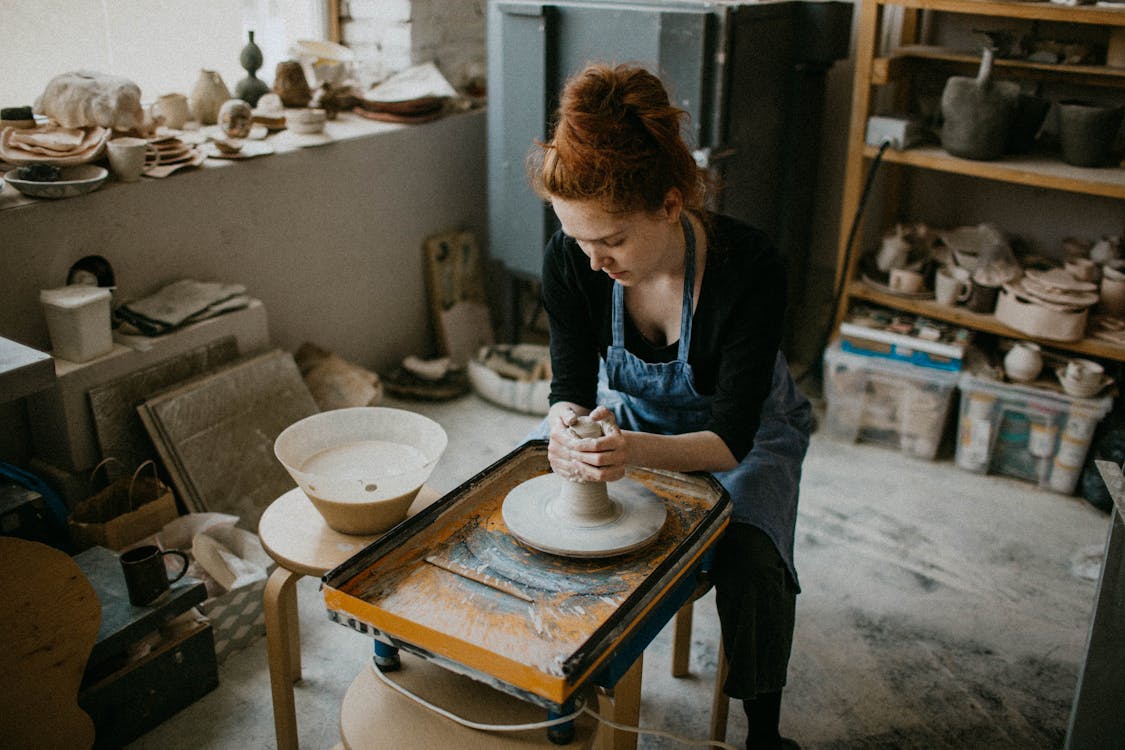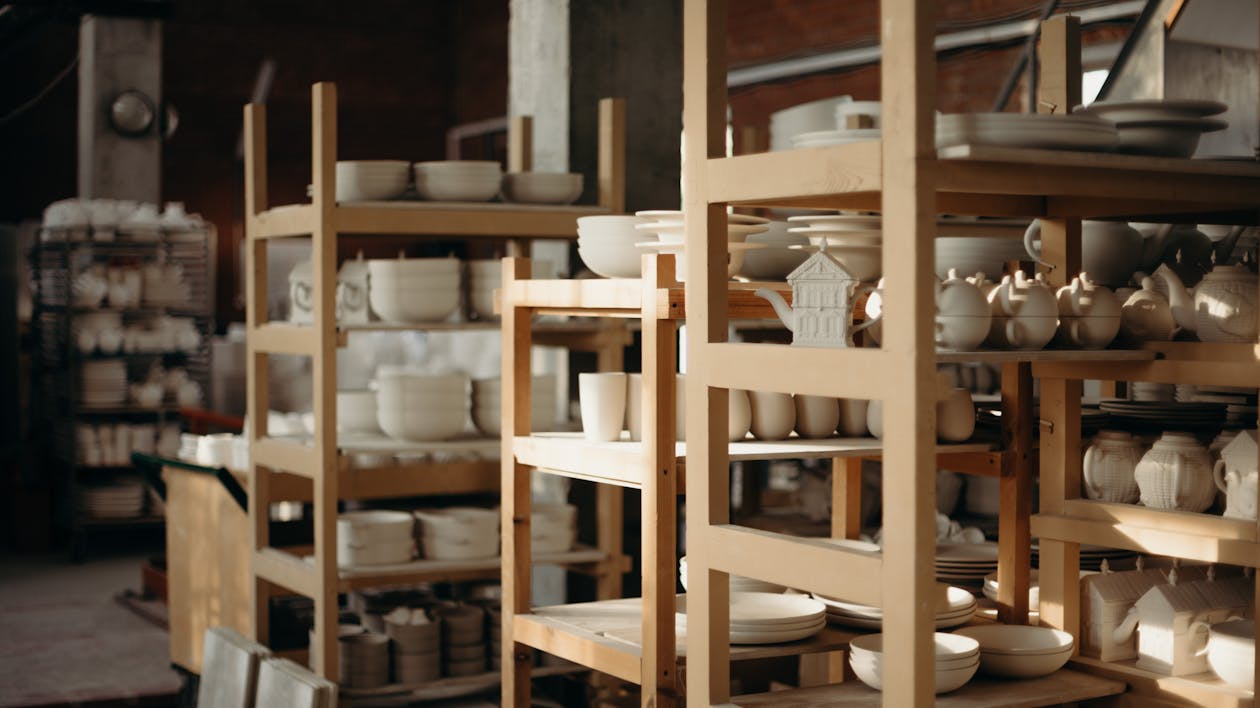How to Make Your Pottery Business Stand Out Tips for Success

Are you thinking of establishing a pottery shop? Starting a pottery business may be fulfilling and successful work, regardless of whether you are an experienced potter trying to transform your hobby into a business or an enthusiastic newbie about pottery.
This all-inclusive article will encompass everything you require to comprehend initiating a pottery business, from selecting a business title to establishing a corporate framework.
Choosing a Business Name
The first step in beginning a pottery business is picking a company name. Your company name must be distinctive, memorable, and associated with your industry. Here are some suggestions to aid you in selecting a company name:
Ensure Simplicity
People are more inclined to recall a name that is short and easy to remember.
Make It Relevant
Your company name should accurately describe what you do. For instance, you might incorporate the word “bowl” in the name of your business if you specialize in making clay bowls.
Perform Research
Make sure another company does not already use the name before deciding on it. To find out if the name you want is available, contact the office for business registration in your state.
Setting Up a Business Entity
Setting up a corporate entity is the next step after deciding on a company name. There are several commercial enterprise entity possibilities: sole proprietorships, partnerships, restricted legal responsibility companies (LLCs), and corporations.
Sole Proprietorship
This is the simplest type of business entity owned and operated by one person. The owner is personally liable for all debts and obligations of the business.
Partnership
This company has two or more owners and is run by them. Each partner is solely responsible for the business’s debts and obligations.
LLC
A business form that offers the liability protection of a corporation while enjoying the tax benefits of a partnership or sole proprietorship is referred to as a limited liability company.
Corporation
A company is an independent legal body from its shareholders and offers the highest degree of security against liability. Nevertheless, it is also the most complex form of establishment to set up and maintain.
When selecting an enterprise entity, consider legal responsibility protection, taxation, and set-up maintenance. In addition, it is important to visit a financial expert or an economic professional to make sure you are making the best selection for your specific circumstances.
Equipment and Tools
Potter is an art that requires specific tools and equipment. Therefore, before commencing your ceramics business, you need to procure the following items:
The primary instrument for constructing pottery is a potter’s wheel. You can shape clay into articles like dishes, mugs, and platters.
Kiln
Pottery is fired in a kiln to give it a hard, durable surface. Kilns come in various designs, including electric, gas, and wood-fired kilns.
Clay
Various clays are available for pottery, each with special qualities of its own. Stoneware, porcelain, and earthenware are a few common clay varieties.
Glazes
Glazes are used to give ceramic objects color and texture. It is possible to utilize a variety of glazes, including those with matte, glossy, and textured surfaces.
Tools
To shape and complete your ceramic pieces, you will need a range of tools in addition to the pottery wheel and kiln, including brushes, rib tools, and clay cutters.
Shelving

Any pottery business needs durable shelving, which is a crucial component for storage of supplies and finished pottery. While your pottery is drying and awaiting firing in the kiln, you will need a place to put it. The following advice will help you set up shelving in your pottery studio.
Choose Sturdy Shelving Units
The weight of your pottery pieces can add up quickly, so it’s important to choose shelving units that can support the weight. Look for sturdy metal or wood shelving units that can handle the weight of your pottery pieces.
Consider Adjustable Shelving
Adjustable shelving can help accommodate different sizes and shapes of pottery pieces. Look for shelving units that allow you to move the shelves up or down as needed.
Keep the Shelves Organized
To make it easy to find and access your pottery pieces, keep your shelves organized. Group your pieces by size, shape, or color, and label each shelf accordingly.
Use Protective Coverings
To prevent your pottery pieces from scratching or damaging each other, consider using protective coverings such as foam or felt. You can cut these materials to fit the size and shape of your pottery pieces.
Marketing Your Pottery Business
The next stage is to market your company after setting up your pottery studio and creating pottery items. The following advice will help you market your ceramic business.
Create A Website
A website is a must for every modern company, and it can be a terrific method to highlight your wares and draw in new consumers. Include detailed images of your ceramic creations and details about your company, including your address, contact details, and operating hours.
Use Social Media to Your Advantage
Sites like Instagram and Facebook are excellent for spreading the word about your pottery business. Post images of your ceramic creations, studio behind-the-scenes shots, and any forthcoming events or promotions.
Attend Craft Fairs and Markets
These events are excellent places to display ceramic creations and meet potential clients. Look for regional craft fairs and markets to get your name out there, and consider joining.
Conduct Workshops and Courses
Conducting workshops and courses is an excellent chance to impart your expertise and abilities to others, attract fresh customers, and establish your reputation as a skilled ceramicist. Consider conducting courses in diverse techniques, such as manual construction or wheel throwing, and promote them on your website and social media.
In conclusion, for enthusiastic individuals, beginning a pottery business can be a meaningful and rewarding endeavor. You can position yourself for success in the pottery industry by using these suggestions for picking a business name, creating a legal business entity, spending money on tools and equipment, setting up shelves, and marketing your company. Remember to include your creativity and passion in your pottery; the rest will come naturally.
